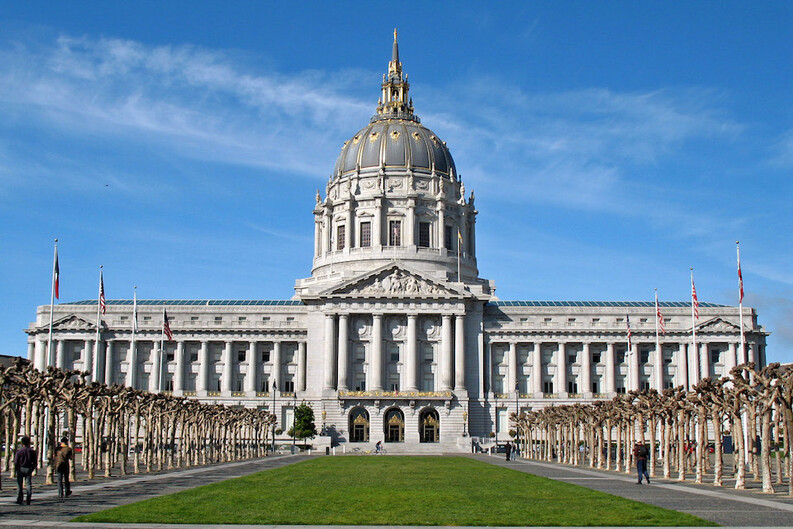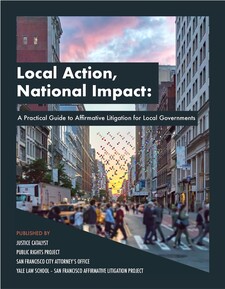Yale Law School Clinic Alumni Co-Write Guide to Public Interest Lawsuits for Local Governments

A new guide co-authored in part by Yale Law School alumni shows local governments how they can use courts to protect their residents, taking cases brought by the San Francisco Affirmative Litigation Project4 (SFALP) at Yale Law School as models.
Public Rights Project released the manual, Local Action, National Impact: A Practical Guide to Affirmative Litigation for Local Governments5. The guide draws from the pioneering 12-year partnership between the San Francisco City Attorney’s Office and Yale Law School, as well as from successful case studies across the country on issues like fair housing, predatory lending, and LGBT rights. The guide was created in partnership with the Office, SFALP, and Justice Catalyst. Its authors are Jill Habig ’09, Christine Kwon ’17, Marissa Roy ’17, Joanna Pearl, and Palak Sheth.5

“Local governments have always had a critical role to play in protecting civil rights, consumers and the environment,” said San Francisco City Attorney Dennis Herrera. “Perhaps some municipal law offices may not have realized how to unlock their potential. We’re honored to provide a roadmap so they can do just that. It’s time for more public law offices to utilize their authority. Get involved, find a law school to partner with, and join us in standing up for the people.”
The guide notes that law school partnerships benefit both local governments and law students. Governments receive legal assistance without cost while benefiting from students’ fresh perspectives and energy. In the long term, these partnerships also create a pipeline of qualified public interest attorneys to work in local government. At the same time, students gain valuable hands-on experience, as well as supervision and mentorship from seasoned litigators. In SFALP’s first 10 years6 alone, students logged roughly 30,000 hours of work for San Francisco.
The guide highlights examples of how local governments have successfully brought cases to improve the lives of their residents, including a suit7 SFALP and San Francisco brought against paint manufacturers for knowingly marketing lead paint for use inside of homes — despite knowing that lead was harmful to children. The case, brought by a coalition of California cities and counties led by San Francisco and Santa Clara, has resulted in a $400 million fund to be used to clean up toxic lead paint.
Started in 2006, the San Francisco Affirmative Litigation Project is a clinical partnership between Yale Law School and the San Francisco City Attorney’s Office. Students work directly with deputy city attorneys to conceive, develop, and litigate public interest lawsuits — lawsuits that tackle problems with local dimensions but have national effects. The clinic has worked on litigation dealing with issues of consumer protection, civil rights, and public health. In 2017, SFALP helped win a nationwide injunction against the President’s sanctuary city executive order. In recent years, it has also helped litigate the California same-sex marriage trial and file a consumer-protection case that made the cover of Businessweek. It is now working on a landmark climate-change suit.


